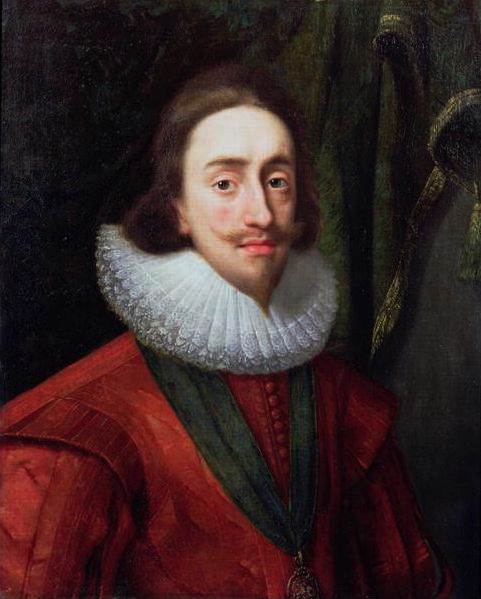The Causes of the English Civil War
From 1642 to 1658, England descended into turmoil. First, civil war erupted and the country divided into opposing Royalist and Parliamentarian factions. Next, the king, Charles I, was found guilty of treason and executed in January 1649. Finally, Oliver Cromwell, the man who had fought so hard for the rights of Parliament, established a quasi-dictatorship in 1653. These events were completely unprecedented and unexpected. Why had England become so chaotic? The Causes of the English Civil War were manifold: this article explores some of the key long term and short term causes.

Long term causes:
Under Charles I’s father James I the role of monarchy had begun to decline. James was often labelled as the "wisest fool in Christendom". He subscribed to the doctrine of the "divine right of kings", which was the belief that God select kings as and God could do no wrong, neither a king - this made James believe he was unanswerable to Parliament.
However, Parliament’s great power over James was money - they had it and he needed it. As a result, the two sides clashed with regards to custom duties, which provided the king was a regular income, but Parliament stated that he could not collect it without them granting him their permission. Consequently, James suspended Parliament in 1911 and it would not meet for another 10 years. James used his friends to run the country and rewarded them with titles. This made many MPs angry.
In 1621, Parliament was recalled as James wished to discuss the future marriage between his son, Charles, and a Spanish princess. This sparked outrage in Parliament as they feared that Charles’s children would be raised as Catholics.
Although the marriage never actually went ahead, the damage it had done had still not healed by the times of James’s death in 1625.
Short term causes:
James’ son Charles was conceited and strongly believed in the divine right of kings. He had observed his father’s arguments with Parliament naturally blamed the MPs.
Between the years 1625 and 1629, Charles and Parliament clashed over money and religion. And then, in 1629, Charles, much like his father had done, refused to let Parliament meet - he locked the doors to Westminster with large chains and padlocks. They were locked out for 11 years: this period was named the Personal Rule, or the Eleven Years Tyranny.
Again Charles was left the problem of having to raise funds, and to do so rich men were persuaded to buy titles.
Another tactic Charles used was to make the country pay what is known as Ship Money. This was a tax traditionally paid by coastal towns and villages during wartime to help pay for the upkeep of the navy. But in 1635 Charles decided that everyone should pay because they all benefitted from the navy’s protection.
John Hampden, a powerful MP, famously refused to pay the new tax because Parliament had not agreed to it. He was put on trial and found guilty, but he became a hero for standing up to the king.
But Charles did not only clash with Parliament; his relationship with the Scots was also turbulent, particularly when he ordered that a new prayer book should be used within their church services, which in turn prompted the angry to Scots to invade England in 1639. His lack of funds meant that in 1640 Charles had no choice but to recall Parliament. Only they could help Charles raise the necessary money for a war.
In return for their help, Parliament made several demands:
- Laud and Strafford would be removed as advisors and put on trial.
- Ship Money would be declared illegal
- Charles would agree that Parliament could never be dismissed without Parliament’s assent. If Parliament was dismissed, no more than three years would elapse before a new Parliament was called.
The Earl of Strafford - "Black Tom Tyrant" - was one of Charles I’s top advisors. He was tried and executed in 1641.
By 1642, relations between Parliament and Charles had further deteriorated. The demands of Parliament were inimical to Charles, who believed strongly in the divine right of kings.
In 1642, Charles arrived in Westminster with 300 soldiers and attempted to arrest five of his most virulent critics. Someone close to the king tipped off Parliament and the men fled before Charles arrived. However, Charles I had now shown his true side. MPs represented the people, and yet here was Charles attempting to arrest five MPs simply for daring to criticise him. How many other MPs were not safe? Charles realised that his relationship with Parliament was now irrevocably broken. Six days after the attempted arrest debacle, Charles left London for Oxford to raise an army. Civil war was now on its way.
See also:
MLA Citation/Reference
"The Causes of the English Civil War". HistoryLearning.com. 2025. Web.
